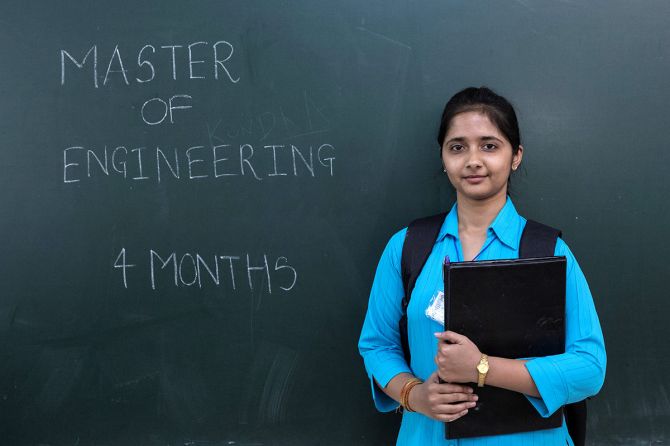 | « Back to article | Print this article |
Candidates should be comfortable working in both online and offline environments, says Jeevan J Arakal, chairperson PGDM program at TAPMI, Manipal.

The COVID pandemic has disrupted academic calendars and the lives of students all over the world.
There will be a severe impact on internship and final placement opportunities for students, the screening process is bound to become tougher, and students will have to prepare hard to get selected and retained by companies.
Organisations are expected to be conservative in the short term.
However, they could be making long term plans and changes to their HR strategies, which will be relevant to the current operating environment.
1. Be flexible, learn new skills
Graduates must be flexible in accepting the new kinds of roles and opportunities coming their way.
It is vital to map and develop skill sets which will be most relevant to the current situation.
Becoming ambidextrous is vital; you should be comfortable working in both online and offline environments.
Graduates, especially MBAs, must reflect on why companies want to hire them, a can-do attitude will be the key differentiator in these troubled times.
Sharpening digital ettiquete and grooming is essential to convey a great first impression and ensure a favourable evaluation.
2. Do your homework
Since opportunities are scarce, graduates must be well prepared for every interview and selection opportunity.
Extensive research on potential companies is the need of the hour, speak to as many sources you can find, tap into the alumni network.
An in-depth understanding will help you to anticipate potential questions from recruiters and the kind of work they offer.
Never evaluate the internship or job offer only based on the stipend or salary offered; this would be ill-advised even under normal circumstances.
Prioritise learning and the reputation of the organisation; such an approach will pay rich dividends in the long run.
3. Never let a crisis go waste.
Use this time to build skills through certification and online courses.
While building new skills, always work to find a match between your preferences and market opportunities.
Given the intensity of the crisis, you may not land an internship or job opportunity despite your best efforts.
In the case of internships, you should look for other avenues like research projects from faculty to compensate for the absence of the internships.
It is understandable that the heartburn will be higher in the case of job seekers. Unfortunately, you will have to temper expectations and face the harsh reality.
Make an objective assessment of the financial leeway at your disposal, focus on getting short-term work even if it is not in your preferred sector or function.
Potential employers will be very impressed by your adaptability and initiative during these uncertain times.
Remember, the skills and the learning you will get could be applied in new and unexpected contexts.
Ensure that no action of yours makes it difficult to enter the workforce because of career gaps.
Building knowledge and skills are vital; however, only a can-do attitude can see you through this crisis.
4. Be persistent
Keep knocking every possible door for internship and job opportunities.
Remember, hope is the consequence of action. Leverage all possible social networks, engage actively with alumni and professional forums.
Opportunities can come from unexpected sources.
5. Stay calm
Finally, it is important to be calm and maintain composure. There is tremendous pressure on communities and individuals.
Focus on mental health and happiness, connect with family and friends in times of despair, draw and give strength to your near and dear ones.
A mind at peace is the foundation on which you can build plans to face this challenging environment.
This storm will pass, and a career spanning three to four decades will have many more challenges.
